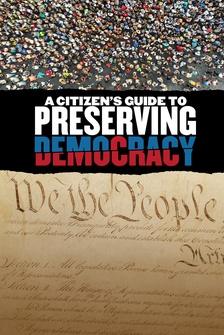We've been talking about the sort of gender segregation is how I think of it.
I'm going to talk to women now.
I'm going to talk to men now, which is sort of what's been going on.
But there's another demographic that former President Trump has been going after.
It's a curious one.
It is people who live in blue states.
Yeah, Jessica, I want to ask you, why do you think the former president is doing this, going, we've got New York, Colorado.
Colorado hasn't voted red in 20 years.
Yeah, well, I mean, he's focused in on Aurora there.
He's it's another sort of, you know, focusing on false things of crime and stuff and then.
I think he wants to zero in on saying, you know, look at these blue areas, look where crime is, look where immigration is.
I mean, I think for him it's a little bit of playing to his vanity, you know, he's a New Yorker, he wants to fill Madison Square Garden.
He wants to say I go to California and stuff too, and you know, there are important house races like the house could be won or lost in New York or California, but these are also people, the, the Republicans that are there, they need to run ahead of Trump in these Biden districts, so I'm not entirely sure that helps there, but I mean, we are functionally, it's a national election even.
We're of course focused on these seven swing states and wherever he goes, it's going to be covered in those states so I think they sort of see, you know, when it's not necessarily a loss that he's going to get the attention in different things, but I think for him it is highlighting what he sees as failed democratic policies.
I have a theory, and I want to get your opinion, especially as a veteran Trump reporter Ashley, I think he wants to win the popular vote.
What do you think?
So I, I have, it's fascinating.
I have heard that theory floated because you may recall that even after he won in like he had won in 2016 and he was still saying, we forget about this, the election was stolen, because he couldn't have won the popular vote, um, so I've, I've heard that theory.
I'm sort of torn on it.
Um, it feels hard, it still feels hard when you look at those numbers to win the popular vote, and I, I do think.
Madison Square Garden is sort of like a bucket list item for a kid from Queens, but yes, it's it's a theory that I have also considered if in fact he's not running again, exactly, so, um, what, what do you think the key groups are here, that these folks?
I mean, there is such small we're hearing about these unlikely voters that the Trump campaign is going for.
We don't know if they're going to show up or not.
That's a gamble as well, but how did you read this?
Well, bottom line is both sides have to bring out their bases and Trump has certainly got his base in the bag, I think, and Vice President Harris has A lot of it, but it's, it's interesting to see some of the weaknesses that she has compared to Joe Biden.
Joe Biden was doing better with men, um, she's doing better with women, so as we've talked about a lot already.
They have 3 weeks to try to close the gap on men, certainly they need young people, and that was another thing that I think was the reason that Obama was giving his remarks last night at a college campus.
He talked a lot about man and that's what we all wrote about, but the room was filled with young people as well.
And they need they need people to register, young people to register, they need them to show up and compared to I had put some data in my story yesterday, the number of of young people who are registered to vote is in 34 states across the country is down I think even 15% in Pennsylvania compared to election day 2020 so that's a weakness and those are people that that she needs.
There's another issue, of course, that's a battle for the US Senate and sort of there's been this conventional wisdom that the Senate candidates.
Running ahead of Harris.
She has a good night, and they have a great night, but um you, Jessica, the Cook Political Report, Amy Walter, you all just changed your race rating for Wisconsin to make it a toss up for Tammy Baldwin, the incumbent there just 3 weeks ago we were talking about this.
She looked pretty great.
They were happy about it.
Why that change?
What does it mean?
Yes, so our polling at the swing state polling that we have been doing at the Political Report in partnership with BSG, a Democratic firm, and GS Strategies is a Republican firm, we found that that was the closest of the Blue wall Senate states of any of the battleground Senate states aside from Montana and Ohio within 2 points.
Baldwin leading her Republican challenger there 49 to 47 and that Baldwin had been ahead by 7 points in August and that mirrors, uh, internal polling from both sides that Democrats are sounding the alarm.
I think there's a couple of things.
Eric Huvey has put $20 million of his own money there into the race.
He wasn't running a super great campaign to begin with.
He was sort of making himself the focus of the ads.
He sort of turned the attention more.
Or so on Baldwin and tying her to Harris, I think Wisconsin sort of is Wisconsining right now.
It is such a 50/50 state, you know, the last in the race with Ron Johnson there was decided by a point, um, just so much money flowing in there and I think these candidates outrun the top of the ticket really wasn't sustainable, I think, and except in special cases, I think in like in Arizona where you have Carry Lake that's such a polarizing figure.
If you have sort of more of a generic type Republican.
I think those voters were Going to come home once they learned more about them, and I think that's what we're seeing because remember in 2016 every single Senate race went the same way as the presidential race in 2020, On Susan Collins of Maine managed to outrun the top of the ticket.
She outran Trump by 7 points.
That may be sort of the max, you know we could see some of these races, you know, if Wisconsin, Michigan, within 1 or 2 points, we could see a differentiation, but you know, that, that margin is why Republicans are favored to keep the Senate because in Montana, John Tester.
In a state that Trump won by 16 points.
He's been consistently trailing in polls.
We have that race rated lean Republican, and that's really the whole s that's the whole thing.
So, how does the business community see this?
We anything could happen, but it does seem like most of the scenarios are for some form of divided government right now, I mean, anything could happen.
How does Wall Street think about this?
For one thing, uh, Bloomberg's reported that there is a huge appetite for of course business wants a pro-business.
in Washington, but especially after 4 years of Biden constantly vilifying Wall Street and corporations, right?
Set that aside, investors looking at how what the constellation of power could be are increasingly looking at how individual races can are panning out.
They're assessment is really sophisticated because they're looking at tax policy that's not going to be made at the White House regardless of who wins, the, you know, the, the fiscal purse lies with Congress, and so they're looking At that, and they're also considering debt ceiling fights because the last couple have been tumultuous for markets and there's always the risk that could get worse, um, so far I'm hearing that they think that if we end up with uh Democrats in the House and Republicans in the Senate that it could be a calmer scenario, at least for the debt ceiling because they think the trouble lies in the flip scenario, um, but there's also a view that if it's a divided government and it's Trump, then regardless Trump is going to be leaning in on tariffs to China and other trade partners and that has huge implications for multinationals, but if it's a divided government, some of the frustrations of a Trump White House that there is not enough policy moving may have him want to lean further in administrative and executive order uh actions.
In our last couple of minutes left, coming back to sort of the messaging in the big picture here.
Democrats have clearly been running among their issues, but on abortion previously they were talking more about Trump and democracy.
They have not been talking about.
Supreme Court.
I'm curious from you two have they maxed out on abortion when an overinfluencing voters and why is it that we're not hearing about these other things as much stuff?
I have to say I've I've spoken to Democrats before who are just puzzled that it's never been a bigger issue writ large for the party.
I mean in 2016 the Supreme Court, I mean in 2016, Hillary Clinton had she won, would have had a chance to have had appointed to her or put up the 5th.
That that swing seat on the Supreme Court, which of course she couldn't do because she didn't win and how often I mean she certainly talked about it, but Democrats did not flock to the polls to get themselves a liberal Supreme Court.
Republicans flocked to the polls.
Some of them held their noses at that point and voted for Trump even though they didn't really see him everybody nodding, right, but they wanted the Supreme Court and they got it and mainly because of Roe at that point.
Right, I mean it was it was for the court, but it was because of what they could do what they could do on that particular issue, so it is so again Democrats where abortion is a bigger issue now and it's been mixed on how much they should there's some views is that they should be hitting it harder because even voters where it's not a first issue as soon as they start talking about it, they become animated and enraged, um, others, they think they the Harsh campaign thinks there's some better messages, but again you can tie Roe in the court or reproductive rights in the court together again with potential two more.
for whoever wins, it's so unfortunately, I think we have to leave it there, guys.
We have a lot more conversation ahead for this program and many of our viewers at home tonight.
So thank you again for joining us










